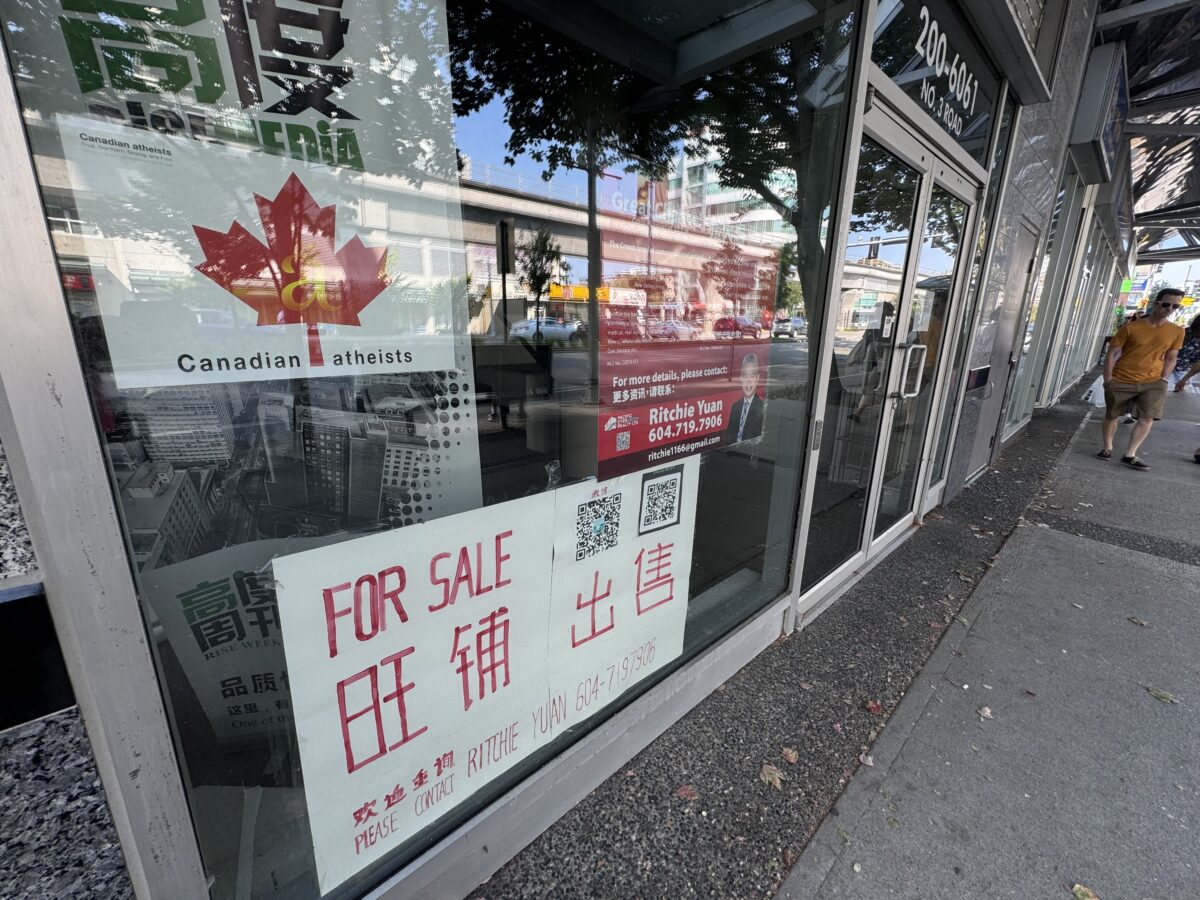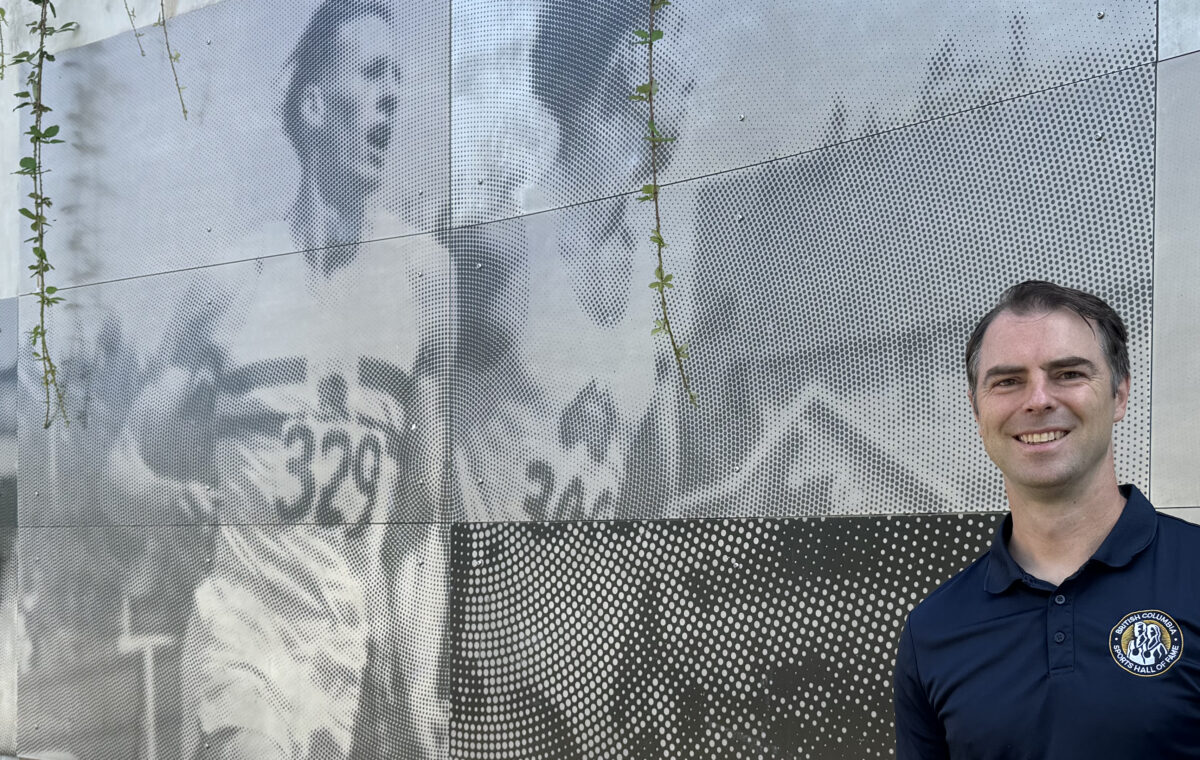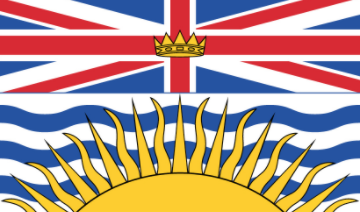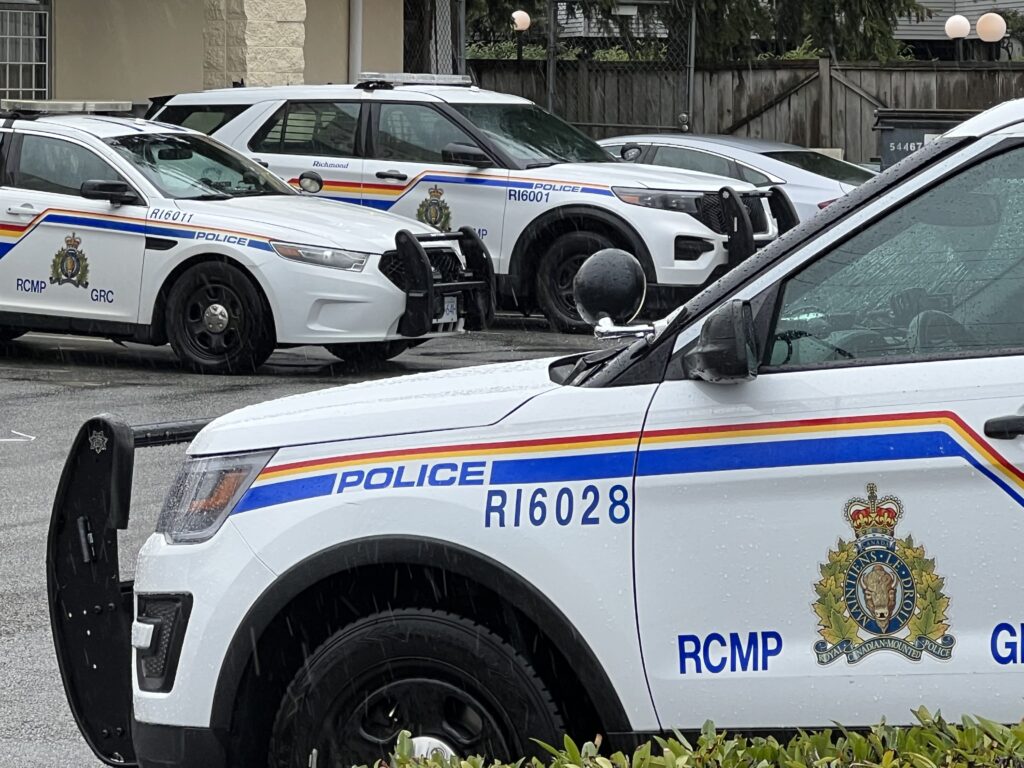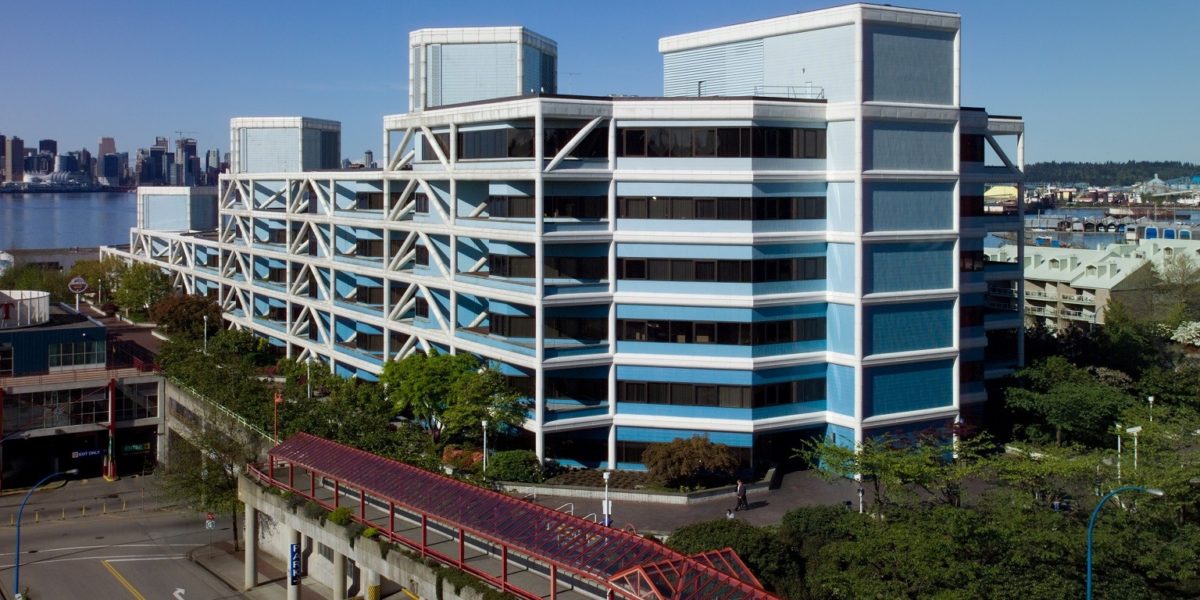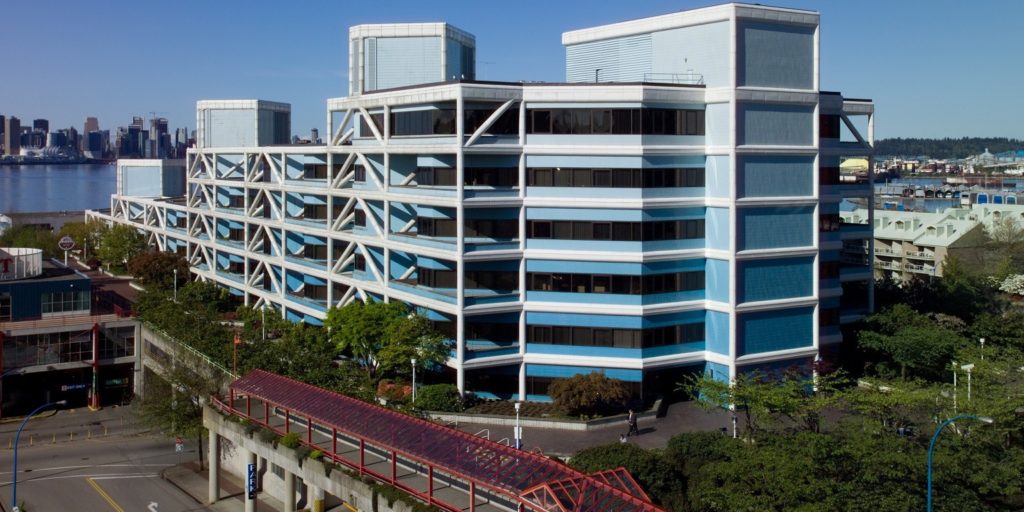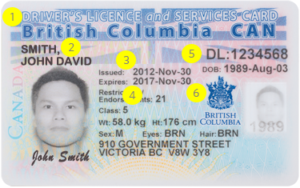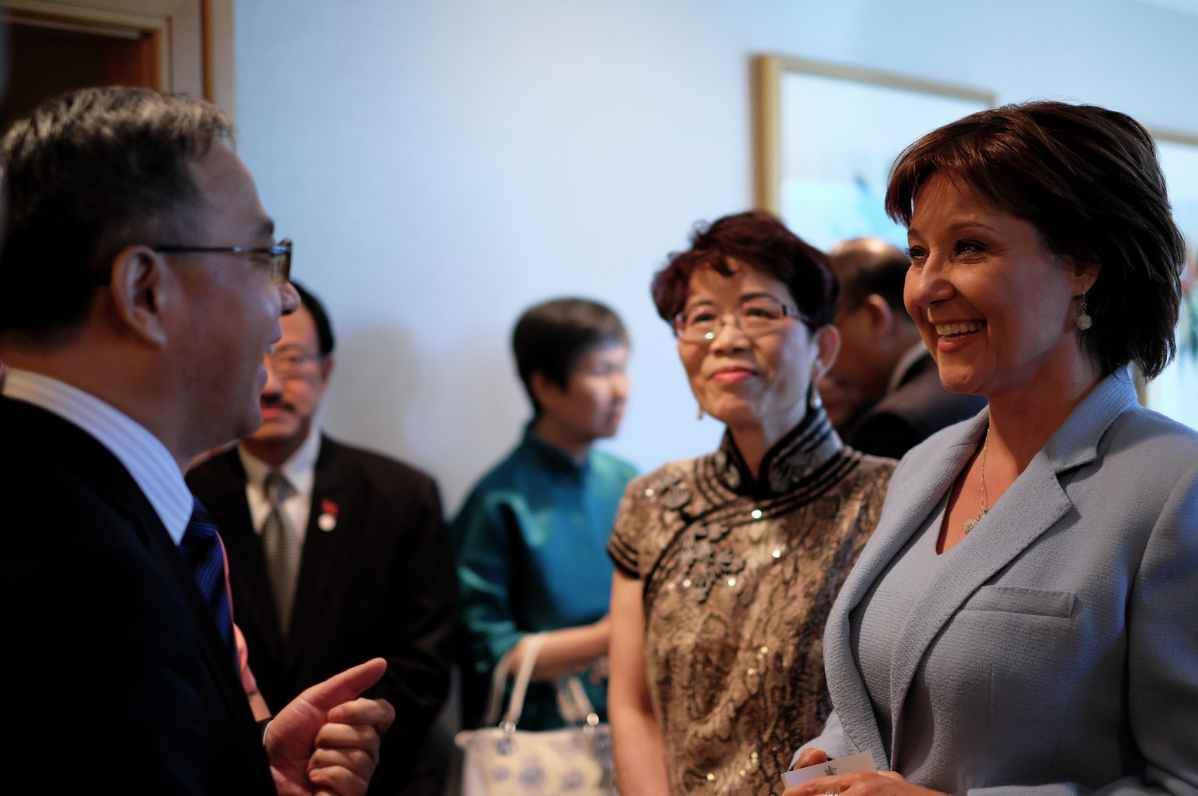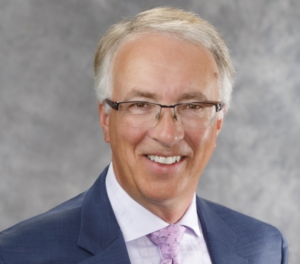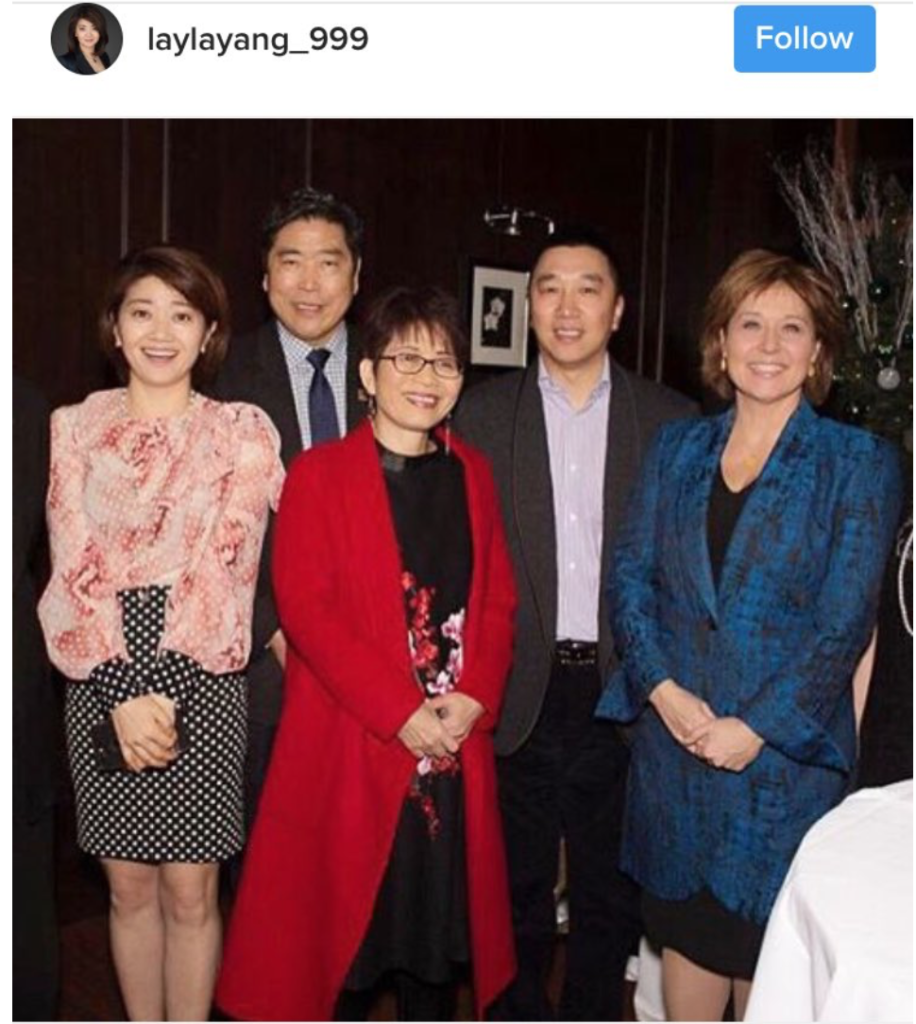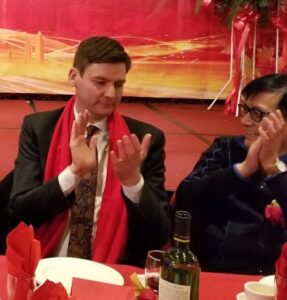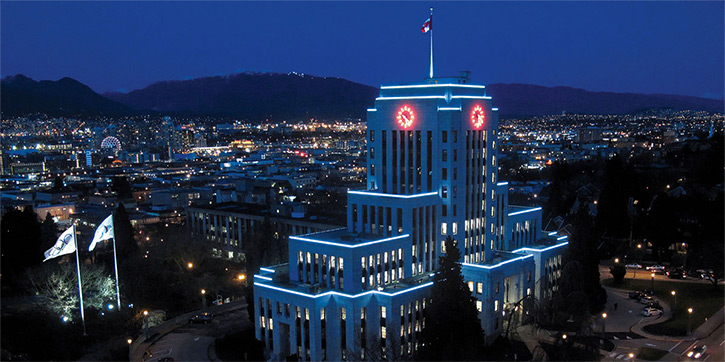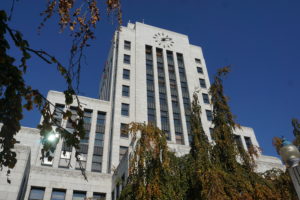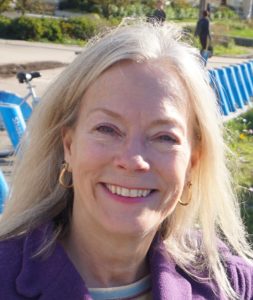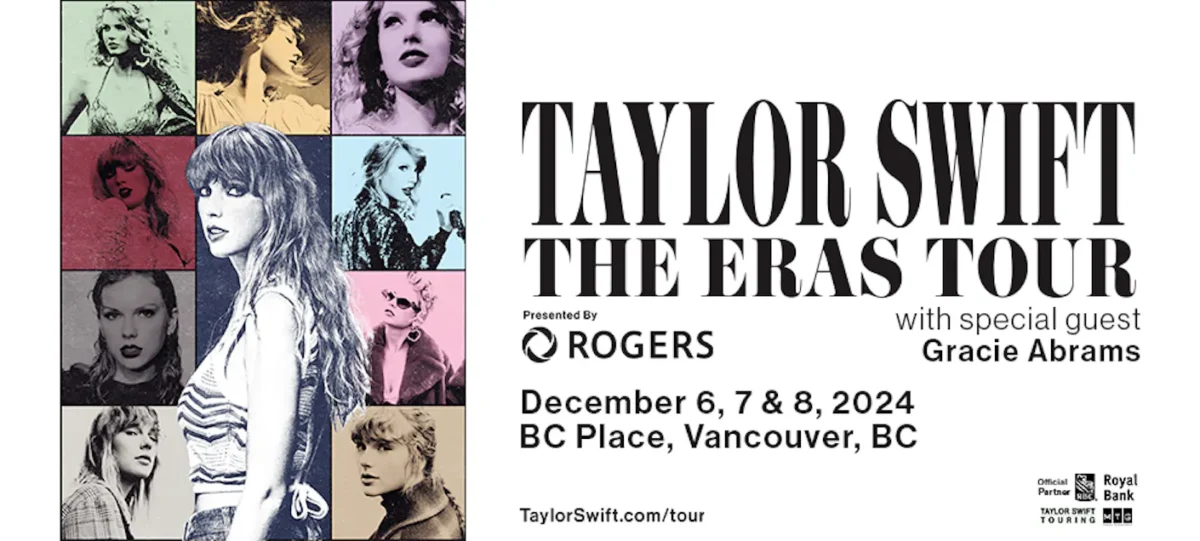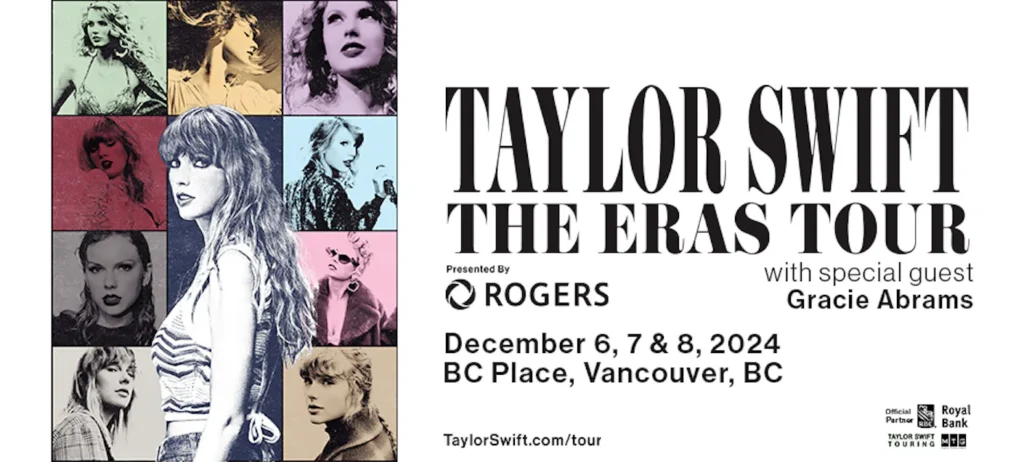Price plummets for disbarred Richmond lawyer Hong Guo’s closed office
-
Briefly: Disbarred real estate and immigration lawyer Hong Guo’s former Richmond office is for sale at $6.5 million. That is a 35% discount from the original asking price, but a million dollars more than the assessed value.
-
In 2023, the Law Society of B.C. deemed Guo “ungovernable” and cancelled her licence due to professional misconduct.
-
In May, a judge issued an arrest warrant for Guo, who returned to China last year. She has not co-operated with demands to provide financial records to real estate investors suing her for misrepresentation and breach of contract. READ MORE BELOW
Bob Mackin
The asking price for disbarred real estate and immigration lawyer Hong Guo’s former Richmond office has fallen by almost 35% since going on the market early this year.
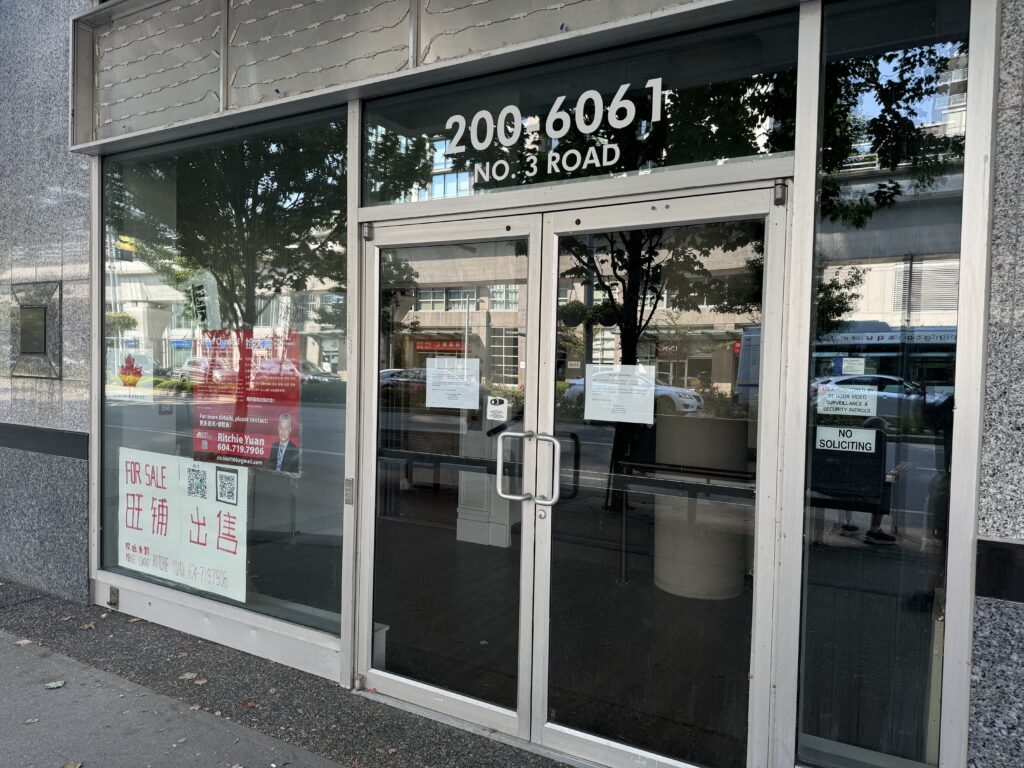
For sale signs at disbarred lawyer Hong Guo’s former office in Richmond (Mackin)
“Crazy price reduction” are the first three words in the listing by agent Ritchie Yuan of Pacific Evergreen Realty Ltd. for the vacated headquarters of Guo Law Corp. at Three West Centre on No. 3 Road south of Westminster Highway. The original asking price of $9.988 million was cut to $7.799 million. It is now $6.5 million, just over $1 million more than the B.C. Assessment Authority valuation.
Yuan calls the 10,000 square-foot office “the crown jewel of commercial properties.” It includes a storefront entrance with two private elevators and a wide two-way staircase.
The lobby is empty, except for potted flowers in the middle of the double staircase, a rack for the pro-China Rise Weekly newspaper and a Rise Weekly vertical sign. A sign for the Canadian Atheists is in the window, beside Yuan’s real estate solicitation.
Printed signs in English and Chinese addressed to “clients, couriers and interested parties,” explain that Guo’s law practice is closed and that the B.C. Supreme Court appointed the Law Society of B.C. (LSBC) as custodian of the firm “to address outstanding matters.”
Guo originally came to Canada from China in 1993 and studied law at the University of Windsor. She returned to China, worked in the State Council in China’s Communist Party government and was called to the B.C. bar in 2009.
In 2018, Guo finished fourth in the Richmond mayoral election. Prior to election day, she denied in an interview with this reporter that China had committed human rights abuses against Uyghur Muslims and journalists, among others.
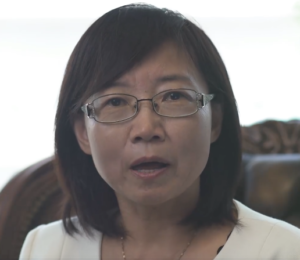
Richmond 2018 Mayoral candidate Hong Guo
LSBC decided last November that Guo was “ungovernable” and could no longer practice law because of a “lengthy, serious and highly aggravating” record of professional misconduct, including breach of trust accounting rules, conflict of interest, misrepresentations, misappropriation and mishandling of trust funds and breach of LSBC orders.”
Guo alleged in a B.C. Supreme Court-filed lawsuit that, between February and April 2016, her employees Jeff Zixin Li and Danica Qian Pan “conspired to misappropriate” more than $6.6 million from Guo’s trust account at CIBC and opened accounts at the Gateway Casino.
Guo filed the lawsuit in July 2016 and claimed to have worked with Chinese authorities to investigate and prosecute Li and Pan. Early this year, she released court documents from China that said Li and Pan were sentenced by a court in Zhuhai, China to 13 and 15 years in prison, respectively.
In a June 27 decision against Guo, Justice Neena Sharma noted that the LSBC found that Guo improperly left at least 125 pre-signed, blank cheques drawn on her firm’s trust account with Li in mid-March 2016. That led, in part, to the Law Society’s finding that Guo failed to properly supervise her staff. Li and Pan filled out the pre-signed cheques by adding payee names and accounts.
In May, another B.C. Supreme Court judge issued a warrant for Guo’s arrest. Guo missed a court hearing after she failed to provide financial records to two real estate investors who sued her for breach of contract and misrepresentation. Justice Gordon Weatherill heard that Guo had returned to China last year and was suffering poor mental health.
Support theBreaker.news for as low as $2 a month on Patreon. Find out how. Click here.
Briefly: Disbarred real estate and immigration






